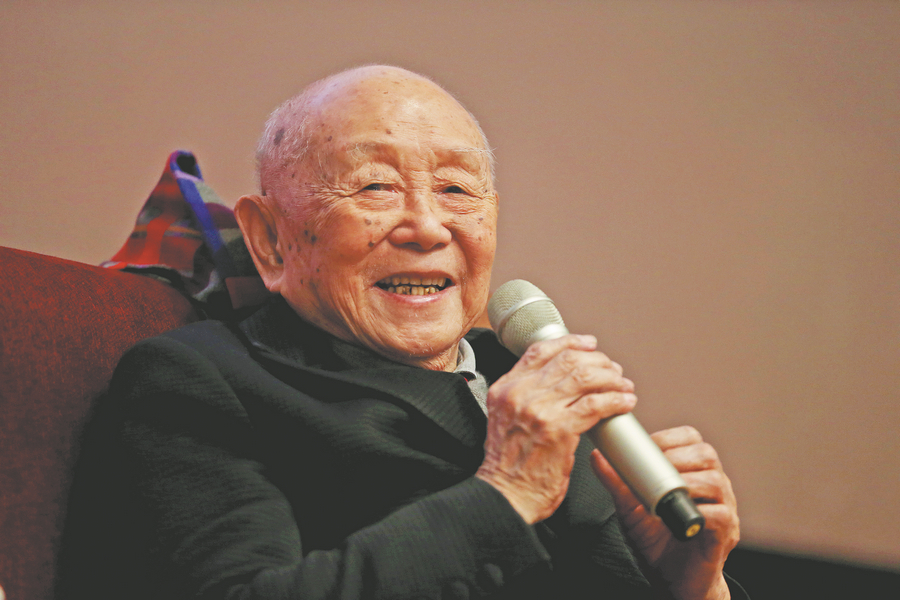

From humble origins, iconic painter left an impressive array of works, covering many fields, Lin Qi reports.
In a television interview in July, Huang Yongyu, the celebrated artist and writer, then in his 90s, said: "Death is not at all a dreadful thing that I would fear. And I don't feel like leaving anything (for people to remember), such as ashes, or (a shrine) to be paid for by devotion at the ancestral hall; there is no need for that."
Huang wrote a poem more than four decades ago, titled If I Could Live to 100 Years Old, in which he also mentioned about the end of life: "The day would come, and as if I were to embark upon a journey, I would bring a tiny small luggage, and put into my chest pocket a rose yet not open; like a veteran sailor to sail far away, (I) would not disturb others, and quietly, I close the door of where I've lived for long."
Huang, whose artistic output is well-received among the public, bid a farewell to the world in the quiet, distant manner he had envisaged. A family statement released on Wednesday announced his passing away a day earlier, at the age of 99; it also said no memorial services will be held, at his will. "I wish that my ashes will be returned to nature as fertilizer," said his last signed will in September 2021.
News outlets and social networking platforms have been flooded with reports and postings mourning his death, in evidence of the man's enormous popularity transcending time and space, age and social background.
Hailing from Changde, Hunan province, Huang lived with a striving, unyielding spirit that transformed him, a country boy with a humble background, into a legendary figure in art and literature in the second half of the 20th-century China. His oeuvre, encompassing paintings, woodcuts, literary compositions and designs, embodies humor, acumen and a magnanimous attitude, which made him a subject of respect and empathy among audiences.